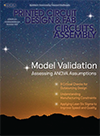Viscom Takes First Positive Interim Stock of New Technologies Team
Hanover, Germany, April 2019 – The ever-increasing performance of servers and computers gives industrial companies new options for creating exciting, customer-oriented solutions. To advance developments in areas including 3D technology and artificial intelligence (AI) even more creatively and effectively, Viscom AG founded the New Technologies team in March 2018, and is pleased with the positive initial results.
The New Technologies team has established itself as a generator of new ideas and concepts. All members are well-versed in software development and have mastered numerous script languages, among other things, enabling them to use rapid-prototyping methods to develop solutions extremely fast and to assess the functionality of these solutions. Despite this, the team members have very diverse educational backgrounds, ranging from mechatronics to mathematics and IT as well as mechanical engineering. This ensures that creative ideas come from various directions and are implemented in an interdisciplinary manner.
One development that originated with the New Technologies team and recently reached the testing stage is AI-supported verification. The goal of this electronics manufacturing solution, which is based on artificial neural networks and will begin field testing soon, is to support the human judgment of machine operators on whether components and solder joints designated as possibly defective in the automatic inspection process actually fulfill all quality criteria. "A wide variety and large number of images were used to train a classifier for this purpose,” explained Detlef Beer, division head for serial products at Viscom. “It is practically the result of artificial intelligence training.”
In use, the software trained in this manner supplies probabilities expressed as percentages of whether a result is good or bad. This means that every AI result is mandatorily accompanied by a confidence level that states how conclusive a decision is. According to Mr. Beer, "For applications such as the frequently used speech recognition, 80 to 90 percent recognition reliability is enough for a satisfactory result. However, for solder joint inspection in safety-relevant automotive electronics, we need a significantly higher probability. That's the challenge we are currently working on." But Viscom applications with deep learning have a very different advantage: in contrast to search engines or online retail, for example, they don't have to handle personal data, but only data for electronic components and solder joints.
In addition to the regular staff, students also are important contributors in the New Technologies team. Viscom collaborates with numerous institutes of various universities and offers opportunities for internships and thesis projects on topics of interest to the company. In line with the interdisciplinary spirit of the New Technologies team, the programs of study represented are very diverse, ranging from electrical engineering and computer science to automation technology and mechanical engineering. "It's definitely an attractive option for starting a career at Viscom. Recently, we've hired roughly 50 percent of the students who wrote their theses here," said Beer.
Press Releases
- K&F Electronics Boosts Production with New Hanwha SMT Line
- Luminovo Appoints SaaS Veteran Clifton Lobo as VP Global Sales to Accelerate International Growth
- Johan Stormlund Joins Inspectis AB as Marketing and Sales Manager, Industrial Applications
- Altus Brings Heller’s Revolutionary Short-Cycle Vacuum Reflow Oven to the UK and Ireland







